Top 10 Government Schemes for Agriculture in India in 2025

Table of Contents
- Introduction
- Top Government Schemes for Agriculture in India
- Soil Health Card Scheme
- Neem Coated Urea
- Paramparagat Krishi Vikas Yojana (PKVY)
- Pradhan Mantri Krishi Sinchayee Yojana (PMKSY)
- National Agriculture Market (e-NAM)
- National Beekeeping and Honey Mission
- National Horticulture Mission
- Farmer Producer Organizations Scheme
- Agriculture Infrastructure Fund (AIF)
- National Mission on Edible Oil-Oil Palm (NMEO-OP)
- Conclusion
Introduction
Agriculture is a gamble with monsoon and is often prone to price and production volatility. To this end, the Government of India has launched different schemes targeting varied segments of Indian agriculture. The aim of these schemes is to boost agriculture production, arrest the price volatility, and double the income of farmers. In this blog, we will discuss the top 10 central government schemes for agriculture in India in 2023.
Top Government Schemes for Agriculture in India
Numerous government schemes are in operation in India to promote the development of agriculture in India. Some of the prominent government schemes are Soil Health Card Scheme, Paramparagat Krishi Vikas Yojana (PKVY), Pradhan Mantri Krishi Sinchayee Yojana (PMKSY), and National Agriculture Market (e-NAM), among others.
Soil Health Card Scheme
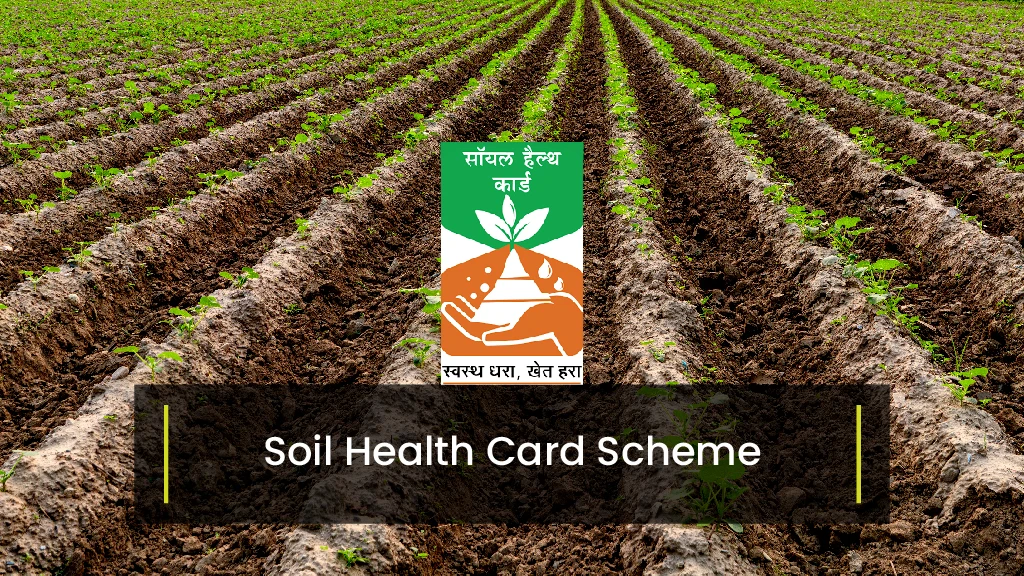
The Soil Health Card Scheme was launched by Ministry of Agriculture in 2015. It seeks to assist the State Governments in issuing Soil Health Cards to all the farmers in the country.
The scheme provides comprehensive information about the nutrient status of the soil and gives recommendation about the right dosages of nutrients to be given to enhance the soil health and fertility.
Soil health cards contain vital details about 12 soil-specific nutrients along with recommendations for appropriate fertilizers, and crop-specific guidance.
Neem Coated Urea

The Neem Coated Urea programme was launched by the Ministry of Agriculture in 2015 to introduce 100% neem coating on urea receiving subsidy from the government.
The aim was to make the use of urea difficult for non-agricultural purposes and address harmful effects on soil and water. Also, it sought to slow down the release of urea, making it more efficient for crop uptake.
Paramparagat Krishi Vikas Yojana (PKVY)

Paramparagat Krishi Vikas Yojana (PKVY) was launched in 2015 as a Centrally Sponsored Schemes to boost organic farming in India.
- It is an extended component of Soil Health Management (SHM) and National Mission on Sustainable Agriculture.
- The objective of the scheme is to produce agriculture products free from pesticides and chemical residues through adoption of low-cost and eco-friendly technologies.
- By decreasing the use of pesticides and chemical fertilizers, PKVY aims to improve soil health and the net income of farmers and ensure safe food for consumers.
Pradhan Mantri Krishi Sinchayee Yojana (PMKSY)

The government introduced the Pradhan Mantri Krishi Sinchayee Yojana (PMKSY) on 1 July 2015. PMKSY seeks to go beyond merely establishing dependable irrigation sources like lift irrigation system and ridge and furrow irrigation method.
- The scheme aims to increase water use efficiency in agriculture by promoting efficient irrigation techniques, enhancing water storage infrastructure, and conserving rainwater.
- It endeavours to establish protective irrigation systems by capturing rainwater at a micro-level through initiatives like 'Jal Sanchay' (Water Conservation) and 'Jal Sinchan' (Water Distribution).
- Furthermore, PMKSY promotes micro-irrigation by offering subsidies, thus ensuring that every drop of water contributes to higher crop yields.
National Agriculture Market (e-NAM)
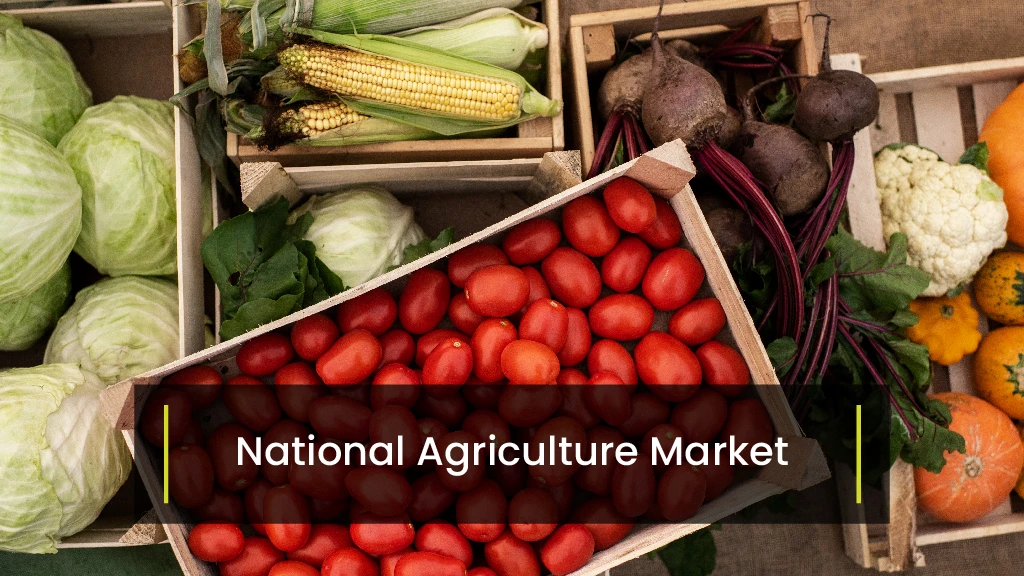
The National Agriculture Market, or e-NAM, is an online platform that connects agricultural markets across the country. It was launched on 14 April 2016, as a Central Sector Scheme.
- The platform enables farmers to sell their produce in a transparent and competitive environment in 585 regulated markets throughout the country.
- e-NAM reduces the role of middlemen, ensuring that farmers receive fair prices for their crops.
- This scheme promotes digitalisation in agriculture, enhancing market access for farmers and reducing post-harvest losses.
National Beekeeping and Honey Mission

The National Beekeeping and Honey Mission (NBHM) was launched as a Central Sector Scheme to promote scientific beekeeping as a supplementary income source for farmers.
- The scheme seeks to achieve the goal of Sweet Revolution in two years, and it was announced as part AtmaNirbhar Bharat Scheme in 2020.
- Under this scheme, farmers are provided with training and financial assistance to start and maintain beekeeping units.
- By promoting beekeeping, the scheme not only boosts crop productivity but also generates additional income for farmers through the sale of honey and related products.
National Horticulture Mission
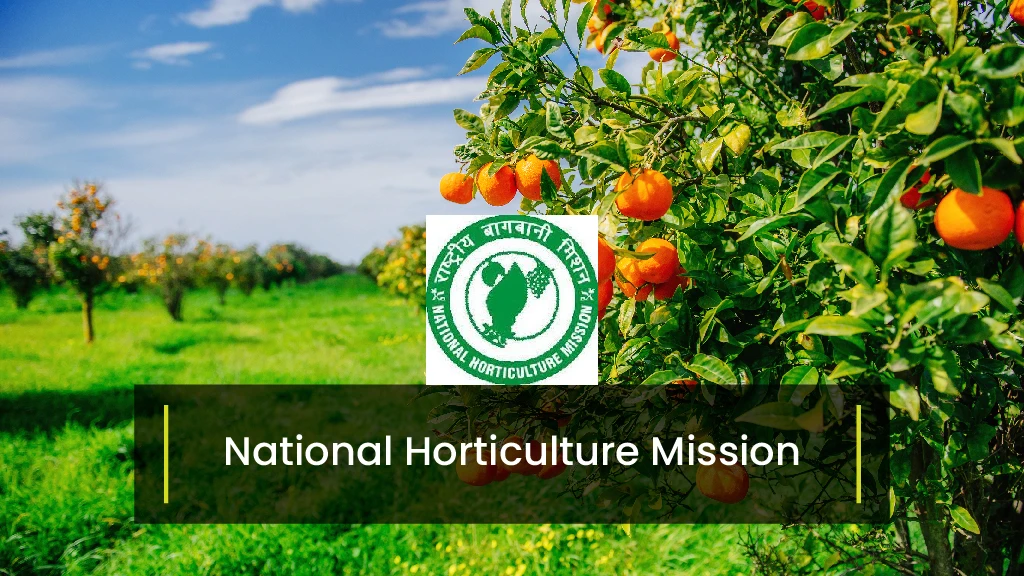
The National Horticulture Mission (NHM) is a sub-scheme of Mission for Integrated Development of Horticulture (MIDH), which is a Centrally Sponsored Scheme.
It seeks to promote the cultivation of fruits, vegetables, flowers, spices, and medicinal plants.
By diversifying agricultural activities and promoting high-value crops, NHM enhances the income of farmers and contributes to overall agricultural growth.
Farmer Producer Organizations Scheme
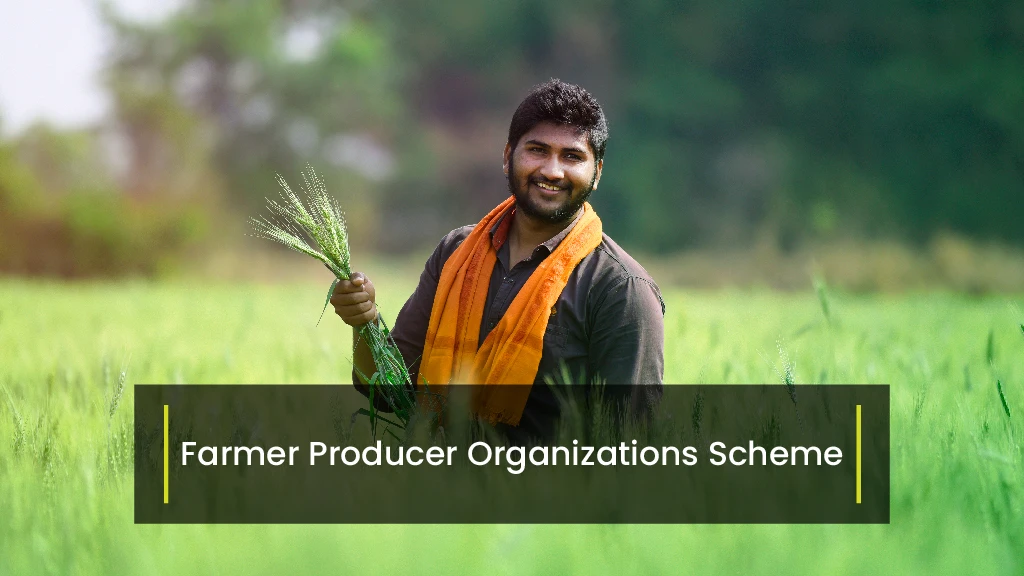
The Formation and Promotion of 10,000 Farmer Producer Organizations (FPOs) was launched as a Central Sector Scheme by the Government in India. Under the scheme
- To establish and promote 10,000 new FPOs by the fiscal year 2027-28, with a total budget allocation of INR 6,865 crore.
- To create FPOs through two primary approaches: the Produce Cluster Area approach and the specialized commodity-based approach.
- The formation of FPOs will be particularly concentrated on the "One District One Product" initiative, which aims to foster product specialization within each district.
Agriculture Infrastructure Fund (AIF)
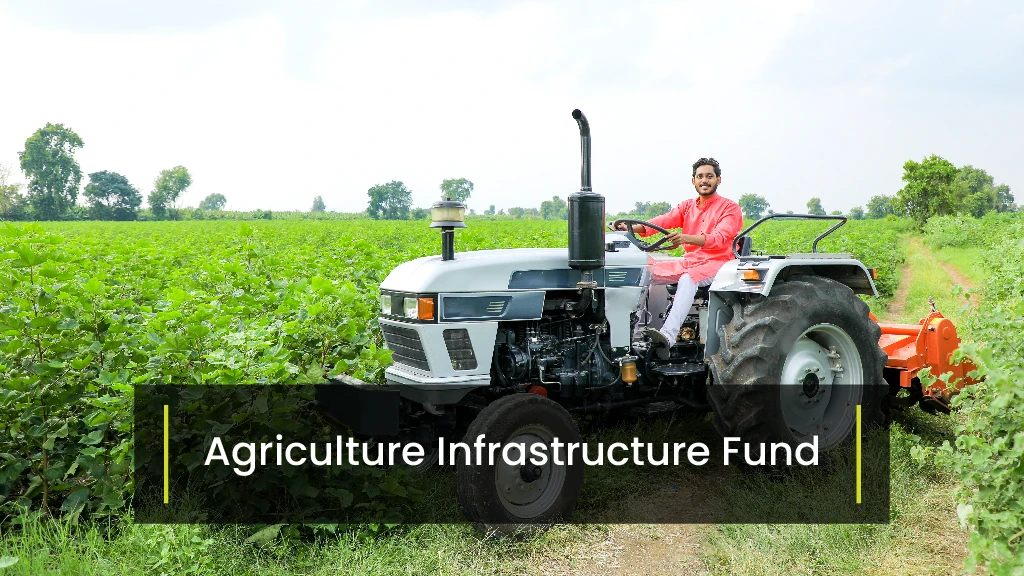
The Agriculture Infrastructure Fund (AIF) scheme, introduced in 2020, aims to create a financing mechanism for medium to long-term investments in post-harvest management infrastructure and community farming assets.
- Under the AIF scheme, banks and financial institutions are expected to provide loans amounting to INR 1 lakh crore, with an attractive interest subvention of 3% per annum.
- Additionally, these loans benefit from credit guarantee coverage through the Credit Guarantee Fund Trust for Micro and Small Enterprises (CGTMSE) for amounts up to INR 2 crores.
National Mission on Edible Oil-Oil Palm (NMEO-OP)

National Mission on Edible Oil-Oil Palm (NMEO-OP) was launched in August 2021 as a Centrally Sponsored Scheme.
- To expand palm oil cultivation by an additional 6.5 lakh hectares by the year 2025-26.
- To increase the oil palm cultivation area to 10 lakh hectares by 2025-26 and further to 16.7 lakh hectares by 2029-30.
- Oil palm farmers will receive financial assistance and remuneration based on a price and viability formula to support their cultivation efforts.
Conclusion
These top 10 government agriculture schemes in India for agriculture in India in 2023 reflect the government's commitment to improving the livelihoods of farmers, promoting sustainable agriculture, and ensuring food security for the nation. These initiatives address a wide range of challenges faced by farmers, from soil health and irrigation to crop insurance and income support.


Related Blogs















